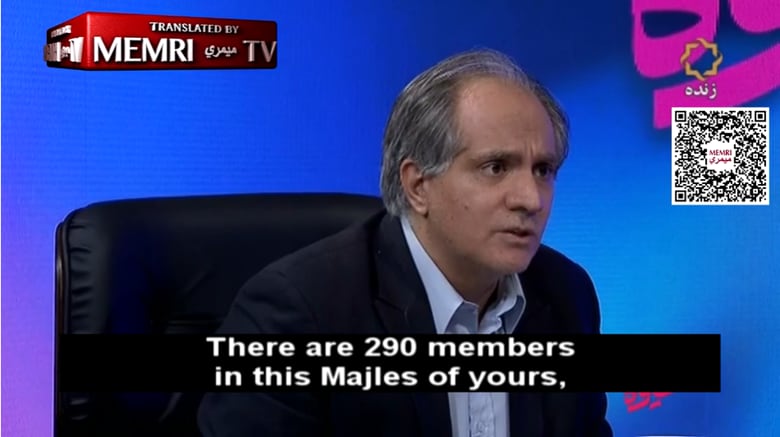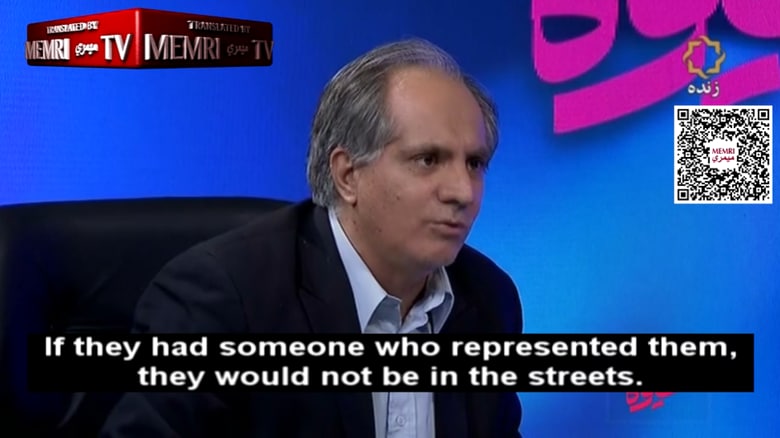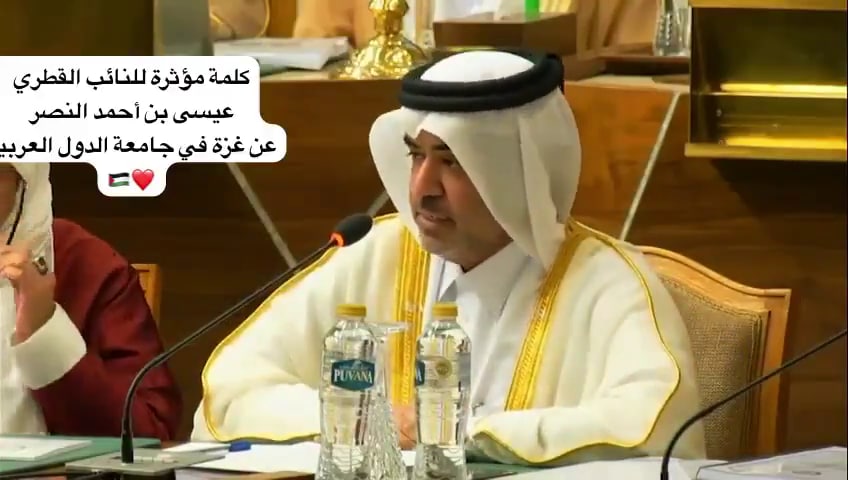
Iranian political activist Saeed Shariati said in a September 20, 2022 show on Channel 4 (Iran) that Iran is a totalitarian regime and that its officials and security forces must reconsider their actions in the crackdown against the protesters following the death of Mahsa Amini (see MEMRI TV Clips No. 9837 and No. 9833). He compared Iran to North Korea and said that it is not a democracy because the people do not have the ability to vote the rulers out of power. In addition, he said that none of the 290 members of Iran’s Majles represent him or the protesters who are being beaten in the streets. It is noteworthy that Jalil Mohebbi, who is a religious scholar and a member of the Scientific Board of the Majles Research Center, appeared on the show alongside Shariati.
Saeed Shariati: "With the exception of people with hearts of stone, everybody felt sad over the [Mahsa Amini] disaster. Obviously, I should express sympathy and sorrow in light of what happened to the protesters in recent days.
[…]
"I call upon all the officials, jointly and severally – officials in politics, security forces, military, and police… If they have hearts, discerning eyes, and cognizant minds, they should reconsider their behavior and their actions, and see the outcome of their deeds.
[…]
"Totalitarian states and absolute rules permit themselves to force a uniform lifestyle upon society, whether in North Korea or here [in Iran]. There, it is done in the name of the Communist Party and 'the people,' and here, it is done in the name of the Rule [of the Jurisprudent], in the name of authority, and in the name of an Islamic rule, Islamic civilization, and Islamic society. These are just names. The important thing is what boundaries the ruler, who sits high above, draws for this authority that he has. Some of them say: 'Our power extends into your bedroom, and we will decide how many children you will have.' This is one definition of governance: A totalitarian rule that claims the right to interfere in all aspects of your life. From where do they draw this right? Again, there are differences. Some of them say: 'The public voted for us. We rose to power and we may never step down. The public has the right to establish our power, but not to vote us out. Forty-three years ago you agreed to this. It was voted for, written in the constitution, and cannot be changed.' We may call it whatever we want, but it is not a democracy. Democracy means that you can oust whoever is in power.

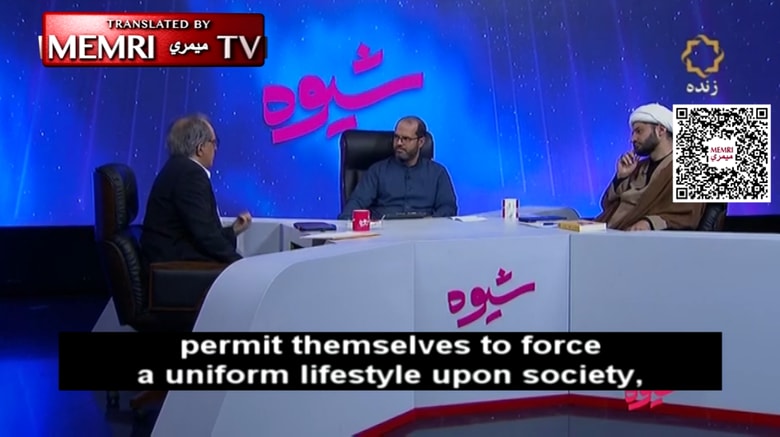
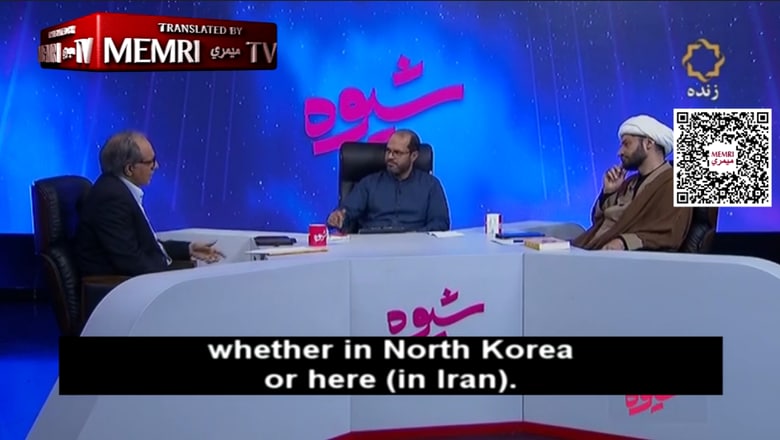
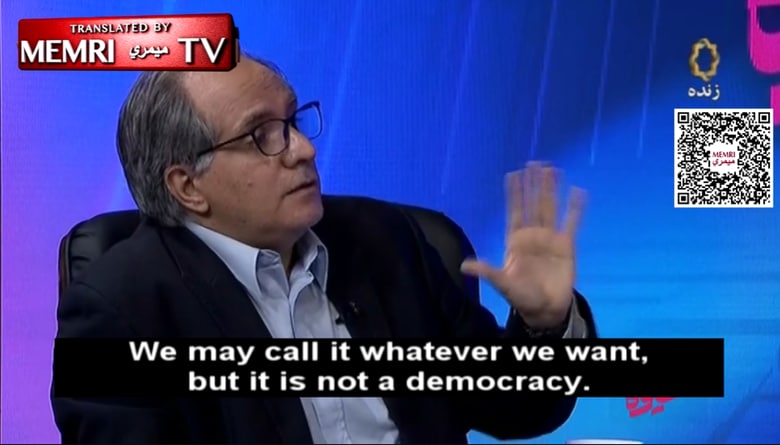

[…]
"The Ministry of Islamic Guidance conducted a survey, which showed that 70% of the public opposes compulsory hijab.
[…]
"There are 290 members in this Majles of yours, but there is no one who represents me – and not only me, but also all the people who are getting beaten with clubs in the street. They, too, have no one to represent them. If they had someone who represented them, they would not be in the streets."
